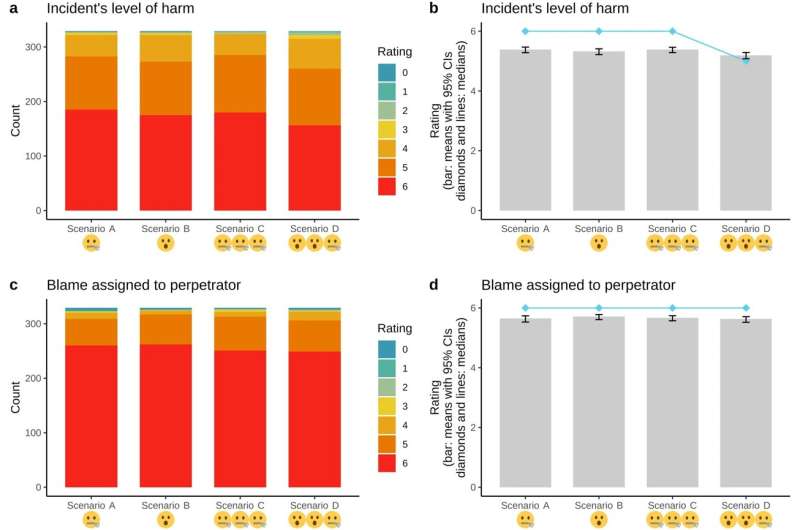This article has been reviewed according to Science X's editorial process and policies. Editors have highlighted the following attributes while ensuring the content's credibility:
fact-checked
trusted source
proofread
Standing together against hate: A collective responsibility

Hate speech incidents are widespread in all areas of society and are often unchallenged by uninvolved bystanders. LMU researchers have investigated what significance the reactions of bystanders to verbal hate attacks have for the formation of social norms.
The study, published in the journal Humanities & Social Sciences Communications, casts doubt on the established hypothesis, which maintains that it is sufficient when one individually stands against hate.
"It's crucial to study bystanders' responses at a group level instead of individually," says Dr. Jimena Zapata, lead author of the study. "A collective response, especially unanimous, plays a crucial role in shaping societal norms on how to respond to hate speech by indicating either a permissive (by remaining silent or indifferent) or a disapproving social norm (by showing opposition)."
This is particularly relevant as, in most everyday situations, reporting and recording of hate crimes depends on the perception of victims and bystanders.
For their study, the scientists carried out online experiments in which ordinary citizens were shown images depicting incidents of hate speech occurring in the presence of bystanders who either remained indifferent or showed their opposition. They discovered that the silence or intervention of a group of bystanders modulates how harmful the incident is perceived to be.
By contrast, the reaction of an individual bystander has scarcely any effect. In addition, the study demonstrated that the effectiveness of voicing opposition as a harm-reducer depends on how strongly such a reaction is followed: Only a unanimous opposition indicating social disapproval was perceived as helpful in reducing the harm created by the incidents shown.
As the authors explain, the study underscores the need to overcome the prevailing passive attitude to hate speech and emphasizes the importance of bystanders' collective opposition to hate speech incidents.
"The implications of our research go beyond the academic sphere and affect public policy, moral philosophy, and the broader social discourse around hate speech," says Zapata. The results call into question the widespread social norms that perpetuate silence in the face of discrimination and support public policies that promote public engagement against hate speech. "A key finding of our work is that uninvolved witnesses play a crucial role when it comes to shaping social norms against hate speech."
More information: Jimena Zapata et al, Bystanders' collective responses set the norm against hate speech, Humanities and Social Sciences Communications (2024). DOI: 10.1057/s41599-024-02761-8
Provided by Ludwig Maximilian University of Munich

















